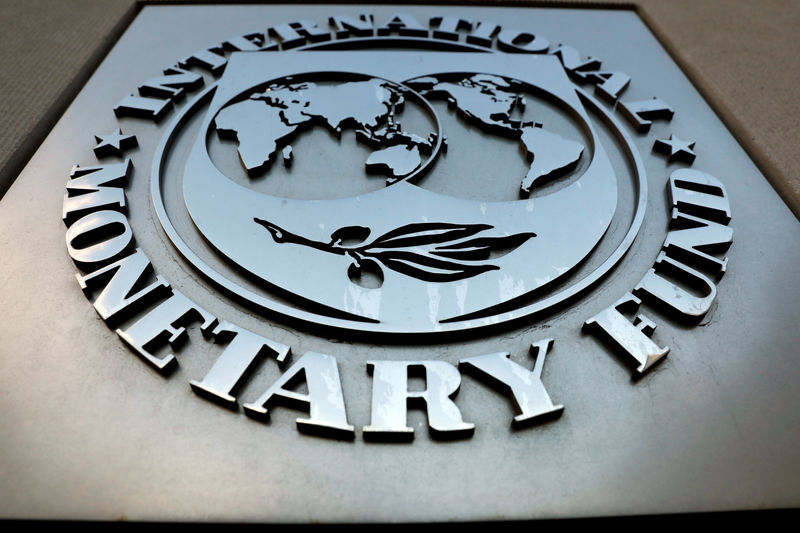By James Mackenzie
ISLAMABAD (Reuters) - Pakistan has reached an accord with the International Monetary Fund for a three-year, $6 billion bailout package aimed at shoring up fragile public finances and strengthening a slowing economy, officials said on Sunday.
The deal, which still needs approval by the IMF board in Washington, would be the 13th such bailout since the late 1980s
Finance Minister Abdul Hafeez Shaikh told PTV television he hoped it would be Pakistan's last.
Prime Minister Imran Khan's government came to power last year determined to avoid another bailout and initially sought billions of dollars in funding from friendly countries including China, Saudi Arabia and the United Arab Emirates.
But with inflation climbing to over 8 percent, the rupee losing a third of its value over the past year, and foreign exchange reserves barely enough to cover two months of exports, it was forced to turn to the IMF.
"Pakistan is facing a challenging economic environment, with lackluster growth, elevated inflation, high indebtedness, and a weak external position," the IMF said in a statement outlining the framework deal.
The IMF forecasts Pakistan's economic growth slowing to 2.9% this fiscal year from 5.2% in 2018, while the central bank has cut its estimate to between 3.5-4%.
As the bailout talks neared culmination, Khan shook up his top economic team, replacing Asad Umar with Hafeez Shaikh as finance minister and making IMF economist Reza Baqir central bank governor instead of Tariq Bajwa.
CURRENCY FLEXIBILITY
For decades, Pakistan has had chronic problems collecting tax and the program envisages reforms to improve public finances and cut public debt, including "revenue mobilization measures to eliminate exemptions, curtail special treatments, and improve tax administration," the IMF statement said.
In addition, it foresees a "comprehensive plan for cost-recovery" in the creaking energy sector, where mounting debt backlogs have acted as a growing drain on government resources.
The budget for the coming 2019/20 fiscal year, expected later this month, will aim for a primary deficit, not including debt servicing costs, of 0.6 percent of gross domestic product.
The savings should allow room for a "substantial increase" in social spending to strengthen welfare protection and boost infrastructure and human capital development, the IMF added.
It said the independence of the State Bank of Pakistan would be protected and the central bank would focus on reducing inflation and safeguarding stability.
A "market-determined" exchange rate for the rupee would help the financial sector, it added in comments reflecting the IMF's longstanding push for Pakistan to adopt a more flexible currency policy to end repeated boom-and-bust cycles.
One of the key sticking points during the IMF bailout discussions had been how to manage the currency, whose exchange rate the central bank underpins in a de facto managed float system and which many analysts see as overvalued.
The package will include "an ambitious structural reform agenda" to boost growth, the IMF said. "Priority areas include improving the management of public enterprises, strengthening institutions and governance, continuing anti-money laundering and combating the financing of terrorism efforts."

But it made no explicit mention of privatizing notoriously sensitive and high-employing state-controlled companies like Pakistan International Airlines of Pakistan Steel Mills.